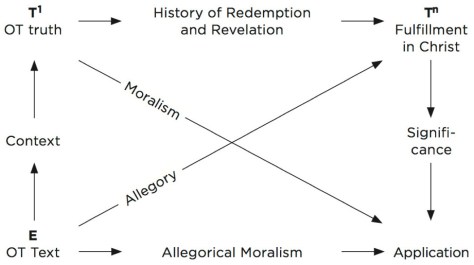“What gain has the worker from his toil? I have seen the business that God has given to the children of man to be busy with. He has made everything beautiful in its time. Also, he has put eternity into man’s heart, yet so that he cannot find out what God has done from the beginning to the end. I perceived that there is nothing better for them than to be joyful and to do good as long as they live; also that everyone should eat and drink and take pleasure in all his toil—this is God’s gift to man.” (Ecclesiastes 3:9–13 ESV)
What true gain does the worker have from his work? Provision? Yes. Accomplishment? Yes. True satisfaction? Not very often. The satisfaction of a job well down and the satiation that we seek escapes us; when we do feel it, it quickly fades. This is what life is like east of Eden. Work is no longer satisfying as it was intended to be; it is now wrought with thorns and thistles. Additionally, the business that God has given man seems meaningless in so many ways (Ecclesiastes 1:4-11). We get up, wipe the sleep out of our eyes, stumble into our days, do our work (which is often frustrating), return home, go to bed and do it all over again – there is a certain futility to it all. Our familial relationships are stunted; they are only whiffs of the glory that they should be. True friends and community are hard to find. This should cause lamenting in us for something that should be, something that once was, something that is now lost. But, it should produce hope as well, as we see God restoring and redeeming those things to their former glory (Romans 8:18-25, Revelation 21:1-5)! It is a grace to be able to stop and assess this and set our hope above the sun!
Despite the futility of this world and the seemingly endless cycle that we are on, there is beauty to be seen and experienced; there still exists a certain order, harmony and beauty in created things. The birth of a child; moments of true connection with a child, spouse or friend; the beauty of a sunset; the satisfying embrace of one’s spouse and lover; the satisfaction of a project completed; the spectacular glory of mountains capped with snow or a beautiful sunset. May this beauty point to Someone above the sun who is far more beautiful. May the glory that we feel in these moments not terminate upon these created things, but roll up to the Creator of these things.
“Humanity still has Eden in its veins. We have ‘eternity in our hearts (Eccl. 3:11). Our souls instinctively yearn for a purposed life without end under this time-chained sun.”1 God has put an ancient, eternal, everlasting sense in our hearts that we cannot figure out or understand. There is a sense in all mankind that there is more than just life under the sun, but no amount of information, studying or learning can satisfy this longing. Facts and information do not resolve this deep whisper in a man’s soul. As wise and noble as Solomon was, he acknowledged that his ability to understand deep, eternal things on his own was limited. We are no different. We can’t figure it out, we can’t find God. Indeed, He is not lost – we need Him to find us – we are lost. We need Him, without Him we will not “figure out” the deep nag in the soul. Indeed, the answer is not under the sun.
Yes, there is frustration to life under the sun; we intuitively know that it is not as it should be, and that there are things that we do not know and cannot understand. Solomon concludes that we should learn to enjoy the good things that God gives us under the sun. We should be joyful and do good because we know that anything satisfying east of Eden is a gift from the Creator because all things should be utter futility, but they aren’t. When we see clearly that created things can never fully sooth the nag of the soul, then we can learn to enjoy them for what they are – not expecting something from them that they lack the capacity to supply. We should learn to enjoy the good gifts that God has given us – like eating good food, drinking good drink with friends and finding satisfaction on our work. The ability to find satisfaction in these things is a gift from the Creator; joy is found in understanding the “givenness” of all things. “In other words, the best good in the madness under the sun is found when we recover some small resemblance to what we were made for in Eden.”2
Against the transient backdrop of the vanities of this world, the absolute sovereign power of the Almighty shines all the brighter. This should cause us to see our position before Him as created beings that are finite, tiny and lacking. It should produce reverence and fear, a theme in Ecclesiastes (5:7; 12:13). But, redemption is coming; Eden will be restored. Lord, help us to park our hope on You, not on the things that you have created.
1Recovering Eden by Zack Eswine, Page 126
2Ibid., Page 15

